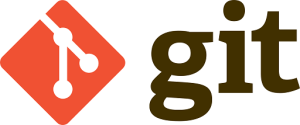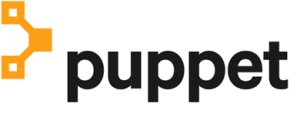Top 10 DevOps Tools
What is a DevOps Tool ?
A DevOps Tool is a programme that aids in the automation of the software development process. It primarily focuses on product management, software development, and operations professionals’ communication and collaboration. DevOps tools also allow teams to automate most software development processes, such as build, conflict resolution, dependency management, and deployment, reducing human labour. DevOps is now more than just a culture of collaboration and software development automation. Artificial intelligence (AI), Machine Learning (ML), the Internet of Things (IoT), and Cloud Computing are all integrated into it.

Top DevOps Tools
Here are the lists of best DevOps Tools.

1. Git
Git is a source code management technology used for DevOps. It is a free and open-source version control system that may be used to efficiently manage small to large projects. Git is a version control system that allows numerous developers to collaborate on non-linear development projects. Git was invented by Linus Torvalds in 2005 for the development of the Linux kernel. For source code management, a distributed version control solution is utilised. It enables numerous developers to collaborate. Through its millions of parallel branches, it encourages non-linear development. Git has the following features: it maintains history, it is free and open source, it supports non-linear development, it produces backups, it is scalable, it facilitates cooperation, branching is simpler, and it allows for dispersed work.

2. Docker
Docker is a free and open platform for building, delivering, and operating applications. Docker allows you to decouple your apps from your infrastructure, allowing you to swiftly release software. You can manage your infrastructure the same way you control your applications with Docker. You may drastically minimise the time between writing code and executing it in production by leveraging Docker's approaches for shipping, testing, and deploying code quickly. Docker automates boring configuration processes and is utilised across the development lifecycle for fast, easy, and portable desktop and cloud application development. Docker's end-to-end platform comprises UIs, CLIs, APIs, and security that are all designed to function together across the application delivery lifecycle.

3. Jenkins
Jenkins is an open source server for automating tasks. It aids continuous integration and delivery by automating the elements of software development related to building, testing, and deploying. It's a server-side application that runs on servlet containers like Apache Tomcat. Jenkins may be used as a simple CI server or transformed into a continuous delivery centre for any project because it is an adaptable automation server. Jenkins connects with virtually every tool in the continuous integration and continuous delivery toolchain, thanks to the Update Center's hundreds of plugins. Jenkins can quickly distribute work across several workstations, allowing builds, tests, and deployments to be completed faster across multiple platforms.

4. Ansible
The Red Hat Ansible Automation Platform is a platform for implementing and managing automation throughout an enterprise. All of the tools needed to achieve enterprise-wide automation are included in the platform. Over the years, the Ansible Automation Platform has evolved to deliver strong automation solutions for operators, administrators, and IT decision makers across a wide range of technology disciplines. It's a premier enterprise automation solution from Red Hat, with a flourishing open source community and the de facto standard for IT automation technology. With an enterprise automation platform that can be utilised by whole IT teams, you can scale automation, handle complicated deployments, and increase productivity.

5. Gradle
Gradle is a build automation tool that is well-known for its versatility in software development. Over XML, the programme offers groovy-based Domain Specific Language. It allows you to create, test, and deploy software across several platforms. Gradle combines the benefits of Ant and Maven while minimising their drawbacks. Gradle eliminates all of the problems that other build tools, such as Maven and ANT, have. Maintainability, usability, extendibility, performance, and flexibility are all priorities for the tool. When it comes to different projects involving multiple technologies, it is well-known for being very customizable. Gradle is popular for providing high-speed performance, approximately twice that of Maven, and can be utilised in a variety of ways, including Java, Android, and Groovy projects.

6. BitBucket
Bitbucket is more than just a repository for Git code. Bitbucket allows teams to plan projects, collaborate on code, test, and deploy all in one place. To eliminate context switching and increase code quality, Bitbucket interacts with first- and third-party technologies. It allows you to spend less time on code reviews using Bitbucket's experience, which makes it easy to see changes and manage many pull requests. Create Jira issues or assign tasks right from your pull request. With Bitbucket's Jira problems tab, you can bring context information right alongside your code. View and interact with Jira issues, including adding comments, viewing attachments, and making revisions. With Bitbucket's branch permissions and enforced merge checks, you can ensure that your team is deploying secure software. Bitbucket's Code Insights automatically checks your code for vulnerabilities.

7. Kubernetes
Kubernetes, often known as K8s, is an open-source system for automating containerized application deployment, scaling, and administration. It divides an application's containers into logical components for easier management and discovery. Kubernetes is built on Google's 15 years of expertise running production workloads, as well as best-of-breed community ideas and practises. Kubernetes, based on the same concepts that allow Google to run billions of containers per week, can scale without adding to your operations personnel. Whether you're running a small business or a worldwide corporation, Kubernetes' flexibility evolves with you to ensure that your applications are delivered consistently and easily, no matter how complex your requirements are.

8. Puppet
Puppet Enterprise controls infrastructure like code, laying the groundwork for DevOps concepts like version control, automated testing, and continuous integration and delivery. You can confidently release changes and recover faster from errors, allowing your team to be more agile and responsive to business needs. We use the DevOps "CAMS" (Culture Automation Measurement Sharing) framework to assess where your teams are on their DevOps journeys, instantly identifying bright spots of success to amplify and zeroing in on target areas to move the entire department forward. They use the DevOps "CAMS" (Culture Automation Measurement Sharing) framework to assess where your teams are on their DevOps journeys, instantly identifying bright spots of success to amplify and zeroing in on target areas to move the entire department forward.

9. Jira
Jira Software is designed to help every member of your software development team plan, track, and deploy high-quality code. When code is committed in Bitbucket, Jira Software instantly updates issues and transitions work. Jira Software's flexible planning features allow your team to plan in the way that best suits them. Your team will become more accurate and efficient as a result of correct estimations. Extensive reporting functionality provides crucial insight into your agile process for your team. Retrospectives are more data-driven and actionable than ever before, thanks to data. As your team grows, you can add and change issue types, fields, and workflows. Jira Software is a flexible project management tool for teams of all sizes and shapes.

10. Splunk
Splunk software helps IT teams implementing DevOps increase app delivery velocity, quality, and business impact. Splunk provides real-time insights across all phases of the delivery lifecycle, unlike other solutions that focus on isolated release components. Splunk On-Call combines metrics, logs, and your monitoring tools into a single source of truth for on-call teams to quickly resolve issues. Teams can also cooperate on problems via chat integrations and alert routing via mobile and online interfaces, and post-incident reports ensure that teams' services improve over time. Splunk On-Call makes on-call monitoring simple.
